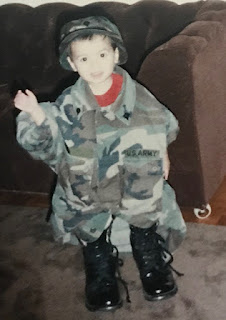I Could be Kind - by Ruben Soliz
*This piece is part of a larger reflection on homelessness that will be featured in upcoming issues of the Phoenix Quakers Newsletter*
It wasn’t until I was eighteen and 230 miles away from home that I saw a homeless person for the first time. I sat in a park, smoking a cigarette and listening to the Rolling Stones, when I noticed him: long beard, distressed clothing, shopping cart piled high with blankets, supplies and recyclables. I’d heard of homeless people. My favorite childhood book is about a homeless family and I’d even worried about becoming homeless when I came out to God-fearing parents at the age of fifteen. But I’d never actually seen, much less met, someone who was homeless. I wasn’t scared or nervous when I saw the man in the park. The opposite actually. I felt a calm come over me, as though something was connecting me to him, something deeper, something universal.
I grew up in a rural, mostly working-class community, kept afloat by the manufacturing industry. Folks believed that there was an order to things: our grandfathers were farmers, our fathers progressed to the factories, and we would go on to professional vocations. I was told that I could do just about anything if I worked hard enough. My father was convinced of this, having realized that possibility during the Clinton administration. Clinton’s economic policies, my father said, enabled our family to progress from working class to middle class. His policies, of course, slashed social benefits and added work requirements to relief programs but many people in our community were never eligible for those programs to begin with, occupying that fine line of ineligibility: making barely enough money to get by but just enough to exclude them from benefits. What Clinton did, what was more meaningful than a relief program, was create jobs. People wanted to work. Working brought them pride, making home ownership and college for their children, real possibilities. Many of the rural, Democratic Clinton supporters from the 1990s would congregate to the far right by 2018. My family and a handful of rural others would cling to the Democratic party despite vehemently supporting the right to bear arms and subscribing to a God who undisputedly opposes abortion, two hot-topic issues that put them at odds with the party. They stuck around because they believe in the party’s economic platform. They experienced the most significant economic gains of their lives under a Democrat and they wanted this for their children.
There were certainly people who fell on hard times in my town. I recently spoke with a childhood friend’s dad about this. “You know,” he said, “Times got tight. There were lay-offs, sometimes several months without work, but we took care of each other. If your family ever needed somewhere to stay, I’d open up my door, and you’d do the same for me.” I’m sure there were people who didn’t have this option, seasonal migrant workers among them, who slept in their cars or in cramped shelter-like structures on the outskirts of town. But I never saw homeless people in the park, in the public library, begging for money on street corners, or toting shopping carts along the sidewalks. My community was squeaky clean. As children, we went to parks on our own, staying there all day and into the early evening; we could be left alone at the library for several hours; and there were never any serious concerns about ‘stranger danger.’ This sounds like a scene from the 1950s but for many rural communities it was a reality in the 1990s.
My town didn’t have a bookstore but our school had an annual book fair, where we could buy discounted books. My parents gave me money each year, and I’d usually have extra saved from birthdays and Christmas. I was very thoughtful about the books that I selected. I felt drawn to social movements, and many of the books that I chose described civil rights leaders and themes. My favorites included biographies of Martin Luther King and Susan B. Anthony. These books were so impactful that I read them to my younger siblings, hoping to inspire them to challenge the status quo that enabled racism and sexism to occupy such a large part of American society.
In fourth grade, I bought The Leaves in October, a novella by Karen Ackerman. The book depicts a homeless family, whose hard-working father consistently promises his children that “When the leaves in October are red and gold, we’ll be home.” I was enchanted. I was inspired. That book, more than any other up until then, convinced me that people are people – black people, people with disabilities, homeless people – and that it is my obligation to see them as people and to treat them with the same loving compassion that my family so freely gave to our neighbors. At that age, I had no idea that I’d spend much of my adult life professionally working with individuals experiencing homelessness. What I could do, I realized at that very early age, was be kind – maybe through volunteering or organized acts of service – but if nothing else, I could be kind to people on an everyday basis regardless of their housing status, race, gender, or any other social characteristics. I could be kind. The Leaves in October was part of the literary canon that convinced me of this.



Comments
Post a Comment